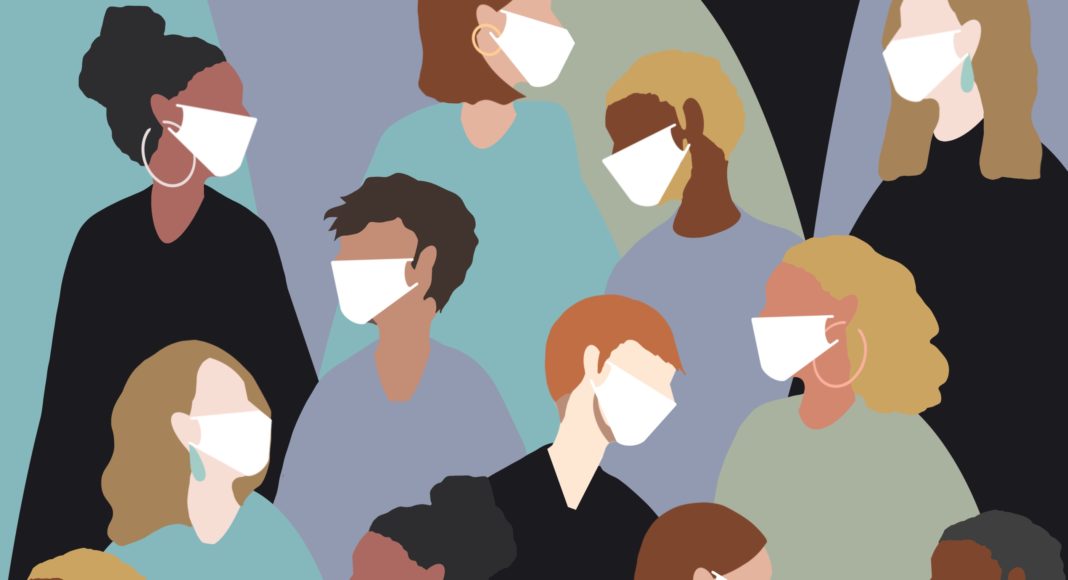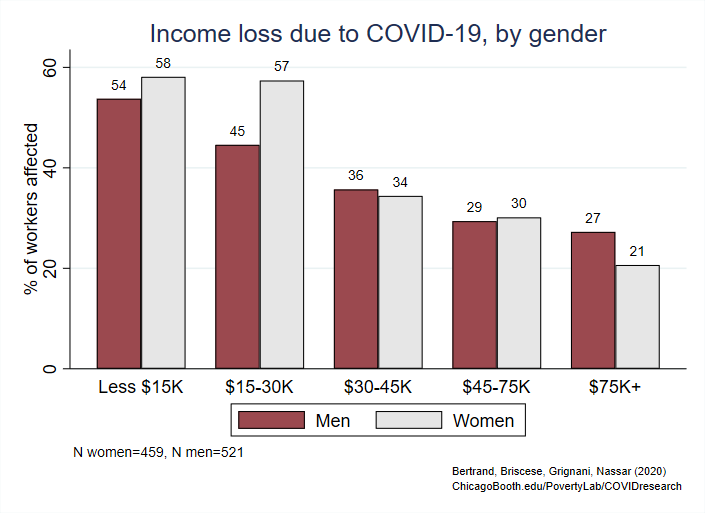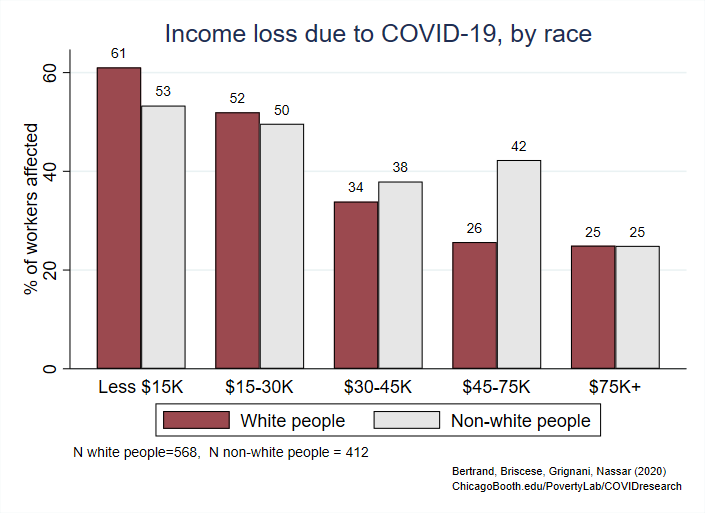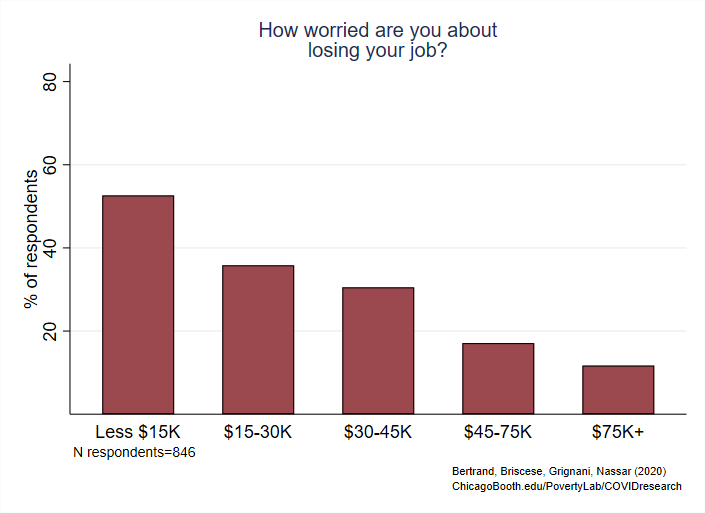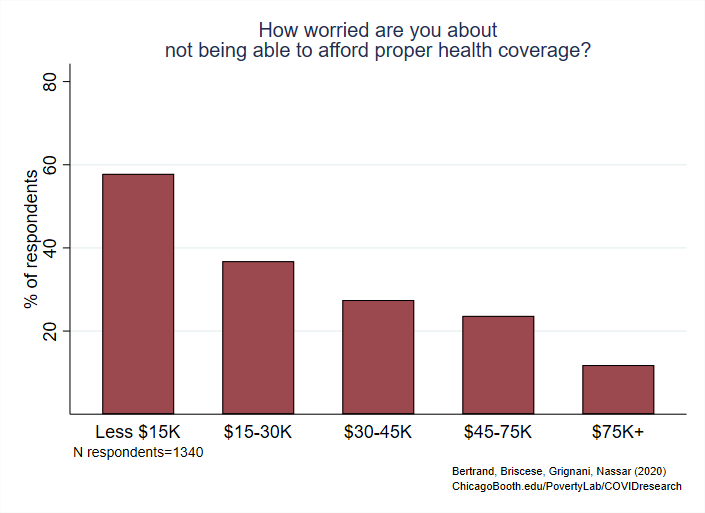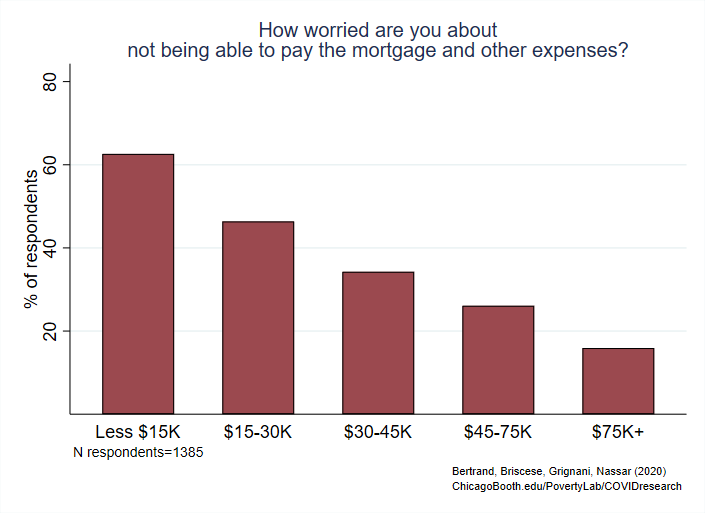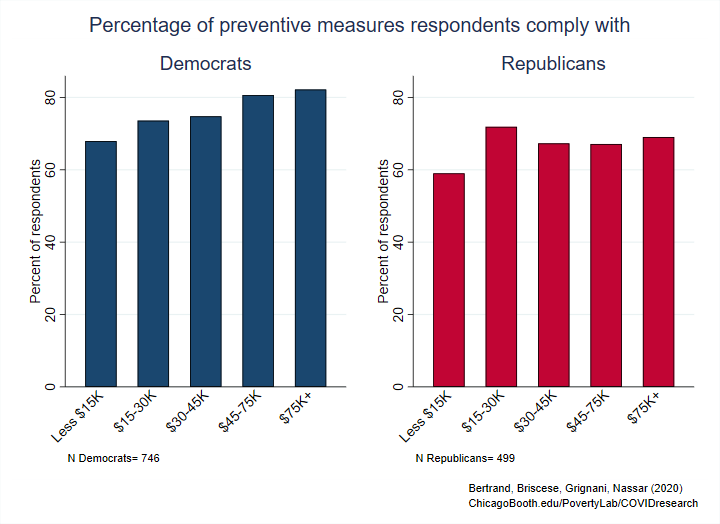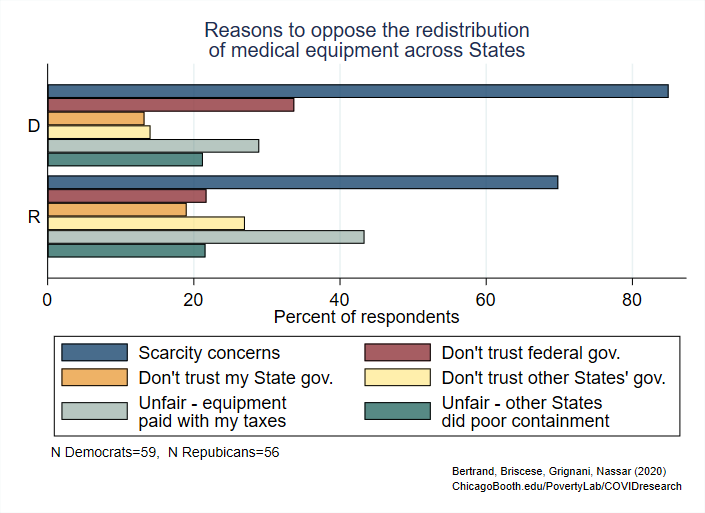New research from the Rustandy Center and the Poverty Lab at the University of Chicago finds that lower-income Americans, especially women, were more likely to lose their income in the first month of the crisis. Low-income households are also bearing the brunt of worry when it comes to job, income stability, and health care coverage. Also, depending on their race, the crisis is impacting Americans disproportionately.
How individuals are coping with the Covid-19 pandemic is the subject of new research from the Rustandy Center for Social Sector Innovation at the University of Chicago’s Booth School of Business and the University of Chicago Poverty Lab at the Harris School of Public Policy.
In partnership with NORC at the University of Chicago, an independent, non-partisan research institution, researchers have launched a six wave a longitudinal survey to a representative sample of the US population. The survey aims to collect information about how Americans are reacting to the Covid-19 crisis, how they’re coping with physical distancing measures, and how this unprecedented crisis might be changing their views about the economy, politics, the role of government, and the future of their country.
Below, we summarize a limited set of findings from the first wave, which was administered to more than 1,400 Americans using a sample drawn from NORC’s probability-based AmeriSpeak Panel, which is designed to be representative of the US population, during the week of April 6-11, 2020.
Finding #1: Lower-income Americans, especially women within this group, were more likely to lose their income in the first month of the crisis.
Finding #2: Depending on their race, the crisis is impacting Americans disproportionately.
Finding #3: Low-income households are also bearing the brunt of worry when it comes to job, income stability, and health care coverage.
Finding #4: Americans are mostly supportive of stay-at-home Covid-19 measures, but support is influenced by their sources of Covid-19 information. About 20 percent of Americans believe the media is exaggerating the gravity of the Covid-19 situation, compared to 51 percent who believe that the media representation is accurate; and 21 percent believe the media is underreporting the gravity of the situation.
Finding #5: Almost 40 percent of Americans do not believe that the Covid-19 outbreak is the most pressing policy priority in the country for the next 12 months. For the rest of Americans, across political parties, Covid-19 was a top priority along with unemployment and the upcoming presidential elections.
Finding #6: Most Americans report being compliant with the virus containment policies, such as stay-at-home orders, but are optimistic physical distancing measures will be over soon. In particular, lower-income Republican voters appear to be outliers, reporting a substantially lower level of compliance.
Finding #7: Most Americans would support a nation-wide coordinated response to Covid-19, but a disapproving minority is opposed due to political mistrust. Interestingly, Democrats were more likely to disapprove because of low levels of trust in the federal government, and Republicans because of low levels of trust with other states’ government.
The preliminary insights emerging from the first wave of the longitudinal survey are showing how the economic impact of the virus has been affecting American households differently depending on their level of income, gender, and race.
We’ll post regular updates of this analysis and other relevant data at ChicagoBooth.edu/PovertyLab/COVIDresearch





